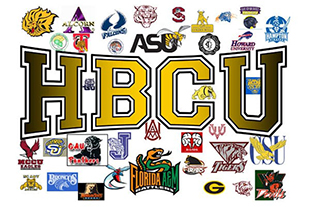

It’s back to school time, and we are once again sharing this post from 2016 that busts those myths about historically Black colleges and universities.
Every year, EBONY celebrates young Black women and historically Black colleges and universities (HBCUs) with its EBONY HBCU Campus Queens competition. Inevitably, after the excited chatter over the dynamic ladies, and despite how many wonderful HBCU graduates folks encounter in the real world, there are individuals who question the merits of attending a predominantly Black college—and the same tired arguments come up. Here are the facts: HBCUs are amazing. The institutions continue to produce countless kick-butt professionals who are industry leaders. And perhaps most important, they are Black businesses. Need a few more reasons to support HBCUs? Consider the rebuttals to these myths:
Myth 1—HBCUs Are Party Schools. The reality is that college students party at everyschool. All you have to do is check out flicks such as Accepted, American Pie 2 or Road Tripto see the tomfoolery youngsters indulge in daily at predominantly White institutions (PWIs). It’s up to parents and young adults to determine the type of environment—i.e., city vs. rural setting, school size and university vs. college—that will be the best to help the student thrive.
Myth 2— HBCU Graduates Won’t Be Able to Find Gainful Employment. A 2015 poll released by Gallup-Purdue University revealed that African-American students who attended HBCUs not only reported a higher rate of post-graduate employment, but they also reported a higher level of satisfaction in how they were treated by their professors and overall confidence when entering the workforce.
Myth 3—HBCU Students Receive an Inferior Education. Graduate schools and corporations recruit heavily from HBCUs, particularly those with highly ranked academic programs. Although inequalities in endowments (the amount of money a school has raised to fund initiatives) between HBCUs and PWIs create large gaps in funding that impact some resources, many Black colleges offer highly competitive programs and facilities.
Myth 4—HBCU Alumni Are Robbed of the Ability to Network. The National Center for Education Statistics reports that almost 50,000 students graduated from HBCUs in 2014 alone. Black college graduates work in every field, create businesses at every level and share a common bond through the HBCU experience. Additionally, attending an HBCU does not preclude one from networking with non-HBCU alumni, classmates from other educational experiences and colleagues.
Myth 5—HBCUs Lack Diversity. First, PWIs typically have a largely White homogeneous student body—so why is this an issue when it comes to HBCUs? Second, although Black institutions have more Black students than PWIs, there is still a lot of diversity. In addition to connecting with Black people from various socioeconomic groups nationwide and internationally, non-Blacks make up 20 percent of HBCU student population.
Myth 6—HBCUs Are All About Greek Life. While the “Divine 9” and other Greek-letter organizations thrive on Black college campuses, there are also scores of other social activities to participate in, ranging from student government and sports to the school newspaper and academic clubs. Visiting the institution and talking to alumni prior to enrollment are the best ways to determine if a campus culture complements a prospective student, regardless of the school.
Myth 7—HBCUs Promote Racism. Racism is defined as the belief that race is the primary determinant of human traits and capacities. HBCUs were founded because of racism; they do not promote it. And while we live in a post-segregation America, the fact remains that most of our schools offer a limited amount of comprehensive history, which is connected to self-esteem and pride. HBCUs are a place to learn more about all aspect of American culture and the Black diaspora.
Myth 8—HBCUs Leave Students in Too Much Debt. According to The Wall Street Journal, in 2014 the average amount of reported student debt for undergraduate studies was $33,000. The costs affiliated with completing an academic year at a four-year institution vary depending on whether it’s a state or private school, housing, meal plans and scholarship. In addition, grades and diligence play a large role in how much money a student raises to finance his or her education. While HBCUs have lower endowments, which means they may offer less in scholarship funds, they also have lower tuition prices than many PWIs. For example, an academic year at Williams College, a top-rated school, runs $52,000 in tuition and fees alone; compare that to a year at Howard University, $25,000, or Florida A&M, $18,000.

Be the first to comment